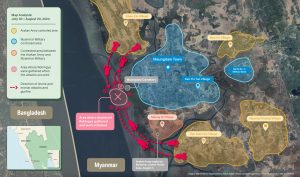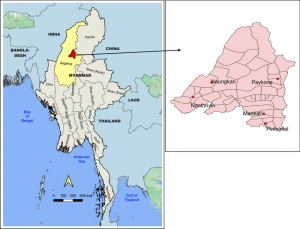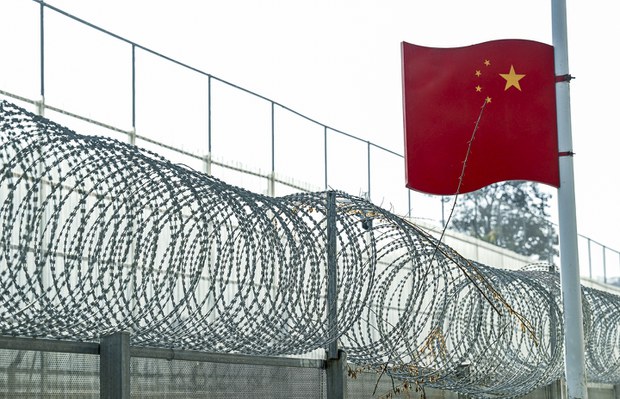Challenges to Myanmar’s Electricity Infrastructure: A Call for Unity as millions of Myanmar people live in darkness due to destruction by opposition PDF forces
Yangon 14 January 2024

In a series of targeted attacks, approximately 90 tower transmitter poles in Myanmar fell victim to acts of terrorism, leaving the Ministry of Electric Power to grapple with the aftermath. Each tower transmitter, valued at around 300 million kyats (approximately $300,000) from 2021 to December 2023, contributes to a staggering total cost of about 9 million U.S. dollars.
The intricate process of concreting and foundation work spans 15 days, with an additional 5 days dedicated to installation, culminating in a 20-day timeline for the completion of a single tower transmission pole. Despite the ministry’s efforts, 59 poles were destroyed in 2023 alone, leaving 37 more in need of urgent repair. In Myanmar, all the Electric Power Services are state owned and facing huge funding shortage after February 2021 coup. The NLD party which won the general election and ousted by the military coup staged a Civil Defiance campaign against all state owned enterprises under the military Junta. The NLD asked public not to pay electrical bills to the Junta and its military wing PDF armed groups planted IED explosive devices to State Electrical Authorities offices as well as destroying electrical grids and power lines around the country since 2021.
Myanmar, grappling with economic challenges, has struggled to provide consistent and sufficient electricity to its citizens for an extended period. The attacks on electricity infrastructure, orchestrated by terrorists, have exacerbated the daily hardships faced by the local population. The situation is dire, as the people now share limited resources for their day-to-day needs.
It’s crucial to recognize that the terrorists’ strategy not only cripples the government’s infrastructure but also inflicts severe consequences on the local populace. By disrupting the electricity supply, the terrorists aim to foment discontent among the people, potentially leading to an uprising against the government.
In the face of these challenges, unity becomes paramount. Myanmar’s citizens, resilient in their shared struggle for basic necessities, must stand together to overcome these adversities. A collective effort is needed to rebuild the damaged infrastructure and fortify the nation against external threats.
As we navigate these difficult times, it is essential to emphasize the strength and determination of the Myanmar people in preserving their way of life. Only through unity and cooperation can the country rise above these challenges and build a more secure and prosperous future.





